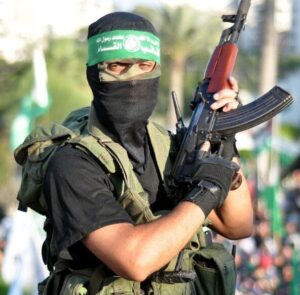Israel and Hamas disagree about stopping fighting, irrespective of the US Intervention.

Israel and the Palestinian militant group Hamas don’t agree on a plan to stop the war in Gaza. Even though the United States, with Secretary of State Antony Blinken visiting the region for the fifth time, is trying hard to make them agree.
Hamas proposed a detailed plan of their own in response to a general idea for a cease-fire that the US, Qatar, Israel, and Egypt had worked out. Their plan includes gradually freeing hostages in exchange for Palestinian prisoners and agreeing to stop fighting.
President Biden commented on Hamas’s response, saying it seems too extreme.
Hamas’s reply includes some demands that Israel might accept, but some it probably won’t, like releasing many Palestinian prisoners, including some who were involved in violent attacks, as part of the final phase of the deal. This information comes from experts and officials involved in the negotiations.
Gershon Baskin, an Israeli who has negotiated hostage situations before, thinks there’s still some flexibility in the situation, although it’ll be tough.
Hamas’s response creates a new problem for the US-backed efforts to end the fighting in Gaza and free Israeli hostages. Israeli Prime Minister Benjamin Netanyahu faces opposition from right-wing groups in Israel to making significant concessions, like releasing Palestinian prisoners accused of attacks.
Israel and the Palestinian militant group Hamas continue to fight in Gaza, causing a lot of damage and raising the risk of a bigger war in the Middle East. The United States is trying hard to get its allies in the region to stop the fighting.
In Israel, Antony Blinken, the US Secretary of State, met with top Israeli leaders like Prime Minister Netanyahu, the head of the Israeli military, the Defense Minister, and the President. This is Blinken’s fifth visit to Israel since the war started, and it’s happening at a very important time.
If a deal to stop the fighting isn’t made soon, Israel says it will keep attacking Gaza.
There are ongoing discussions with Hamas leaders meeting Egyptian officials in Cairo. One possibility is that both sides might agree to a temporary stop in fighting for about six weeks while they keep talking about a longer-term peace deal. But both sides might change their minds before they agree on releasing all the hostages and important Palestinian prisoners.
Gershon Baskin, an expert in negotiating hostage situations, thinks there’s a chance they could agree on the first part of a deal and get some hostages released.
suggested releasing hostages over three six-week stages while working towards a lasting peace.
In the first stage of Hamas’s plan, they want all Palestinian women and children under 19, as well as prisoners aged 50 and older, released from Israeli jails. In exchange, they would release a group of Israeli civilians held in Gaza. This phase would last for 45 days.
The second stage involves releasing 1,500 prisoners, including 500 with long sentences, in exchange for Israeli soldiers held by Hamas in Gaza.
After an attack on October 7, many Israeli hostages are still held by Hamas in Gaza. The attack resulted in over 1,200 deaths, mostly civilians. According to Israeli sources reported by The Wall Street Journal, as many as 50 hostages might be dead.
Hamas’s plan also includes ending the blockade of Gaza, working towards a lasting peace deal, rebuilding destroyed buildings, and allowing Gazans to return to their homes.
Hamas isn’t insisting on an immediate end to the war. Instead, they prefer to have negotiations for a lasting peace while there’s a cease-fire. They’re not asking for Israeli forces to leave Gaza right away. They suggest a gradual withdrawal, starting with Israeli troops moving out of densely populated areas in Gaza.
The length of the cease-fire is causing disagreements in the talks. Hamas wants a long-term truce, but Israeli Prime Minister Netanyahu refuses to stop the war completely. A one-week cease-fire in November led to the release of over 100 hostages.
In Hamas’s plan, they want comprehensive rebuilding in Gaza to start during a 45-day period. They also want military hostages released in exchange for 1,500 Palestinian prisoners. In the third stage, they propose exchanging the bodies of those who died.
According to the Palestinian Health Ministry, more than 27,000 Palestinians, mostly women and children, have died in Gaza since the war began. It’s important to note that this number doesn’t distinguish between civilians and militants.
Israeli leaders, including Defense Minister Gallant, have promised to attack Hamas in Rafah, a city in southern Gaza. They believe it’s crucial to stop Hamas from using smuggling routes to Egypt. However, Egypt worries that an Israeli military operation in Rafah could cause Palestinians to flee into Egyptian territory, causing a crisis and straining Egypt’s relationship with Israel.
Sources / Credit : Jared Malsin at jared.malsin@wsj.com and Summer Said at summer.said@wsj.com

